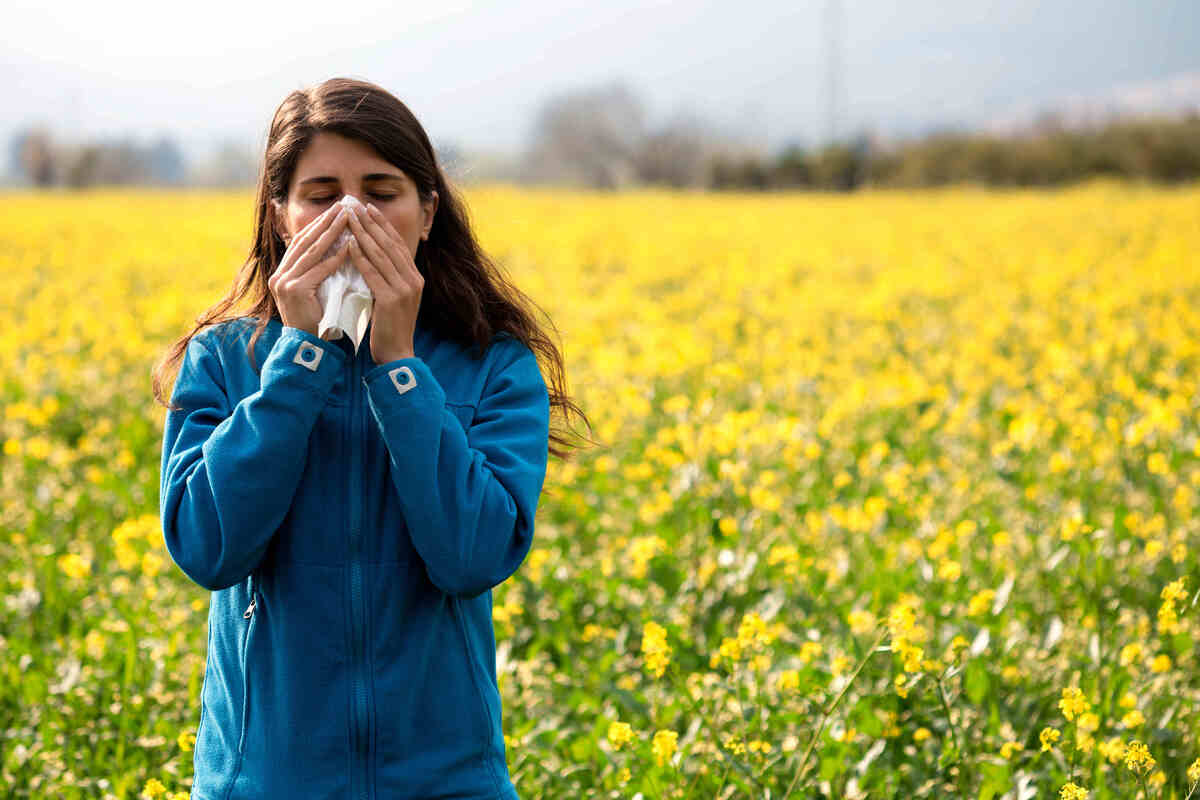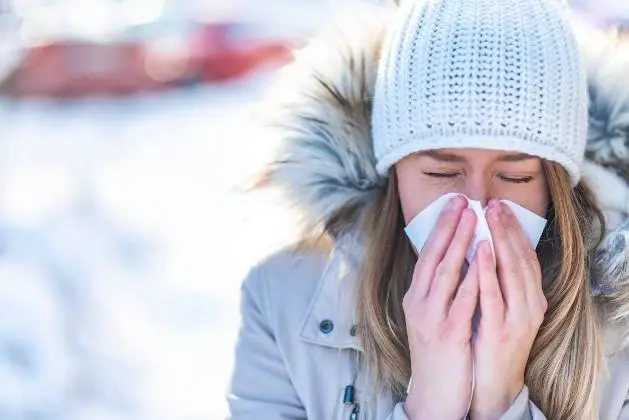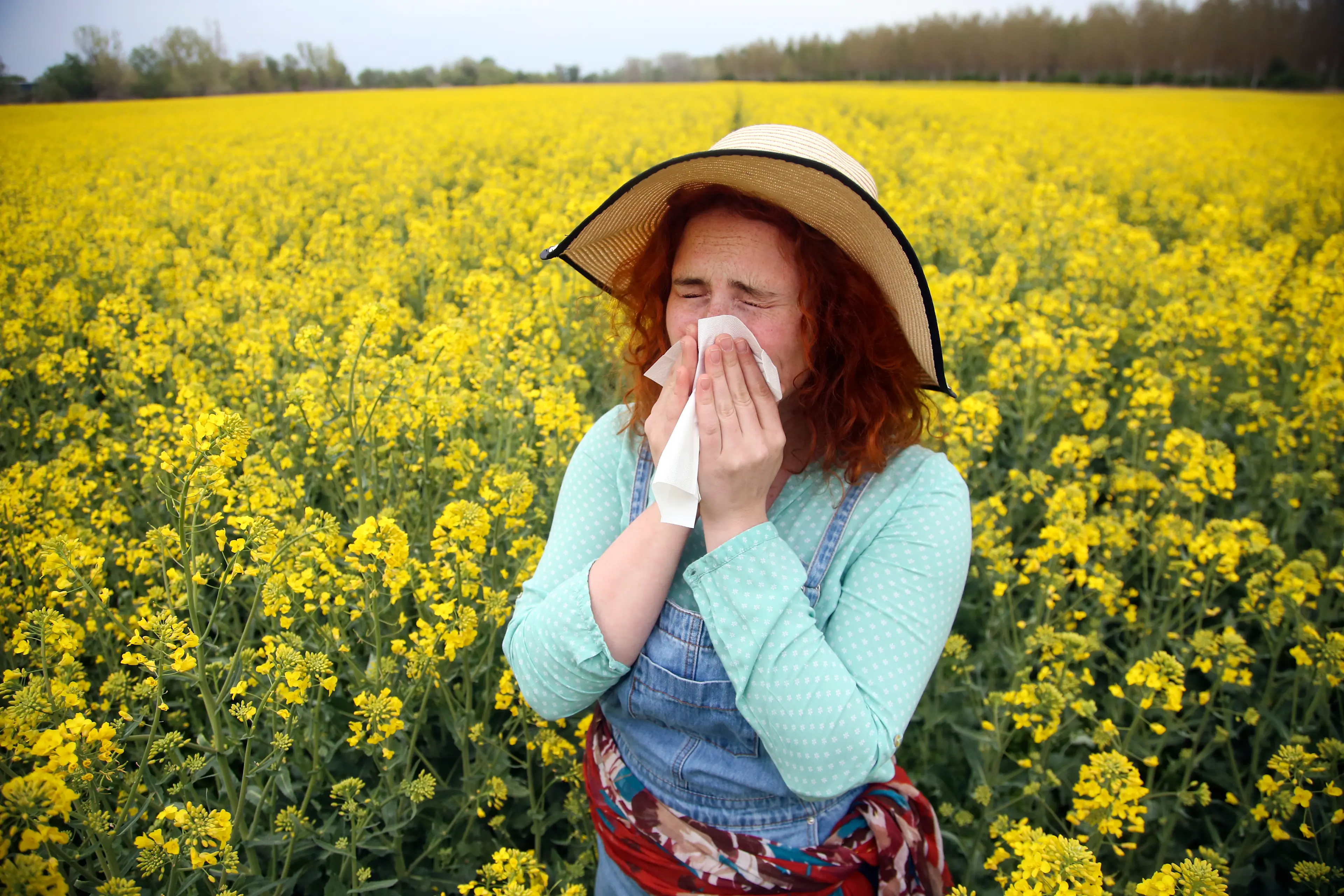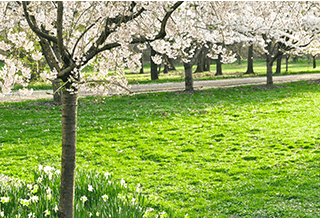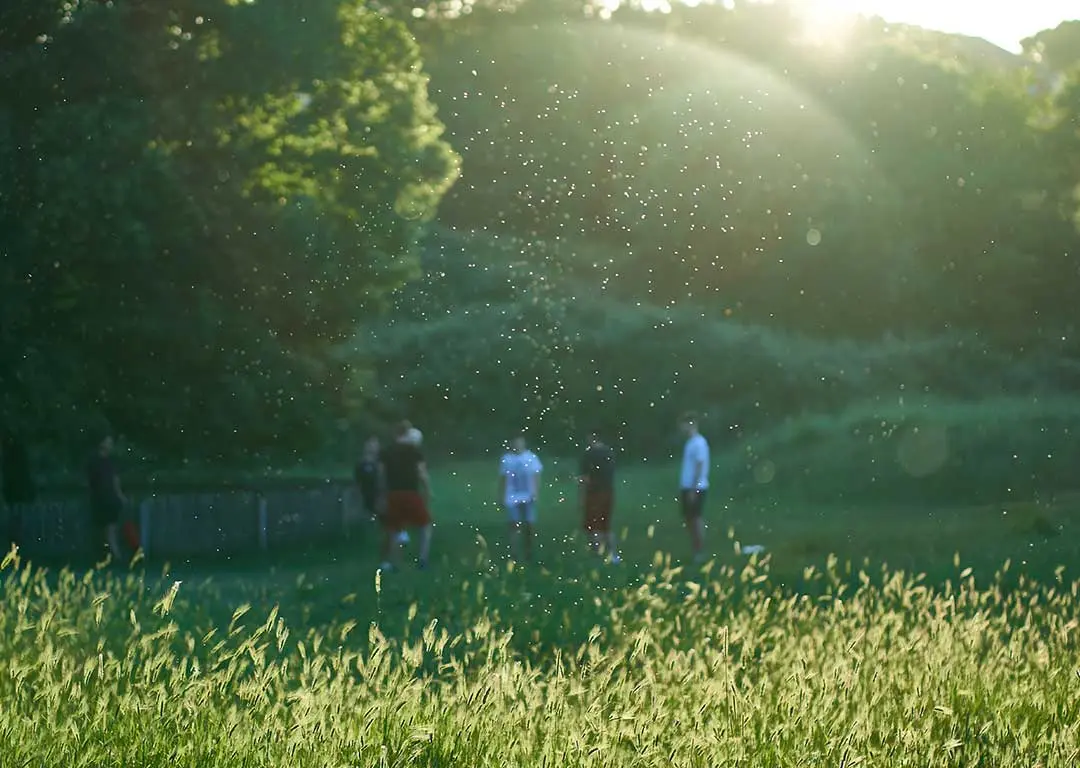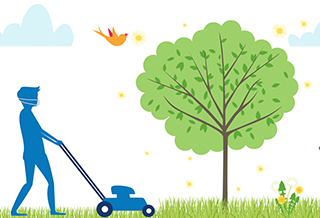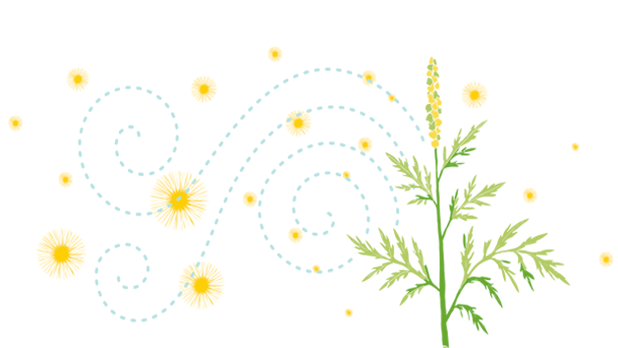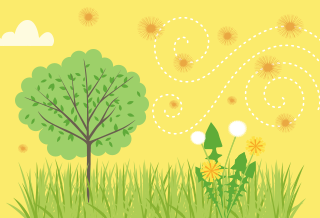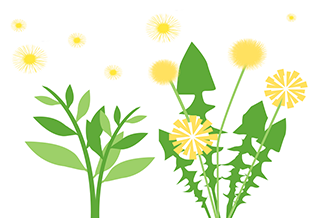What Is Grass Pollen?
Grass pollen is a fine powder produced by grass for the purpose of fertilization. This powder is carried through the air during pollen season. For someone with a grass pollen allergy, this may lead to an allergic reaction when breathed in.
Grass pollen allergies occur when the body's immune system recognizes grass pollen as a dangerous intruder. Much like having your body fight off harmful viruses and bacteria, your immune system is triggered into producing a chemical called histamine, to combat these particles. 2,3
Seasonality of Grass Pollen Allergies
For most people, grass allergies will be seasonal. This means that the symptoms will be worse during a specific time of the year and may disappear in the months after. In Canada, grass pollen allergies tend to be most aggressive between May to July and mid-August to October, with symptoms affecting 1 out of 5 Canadians.3
Common Grass Allergies
Not all types of grass are responsible for your allergy symptoms. But unless you know exactly what you’re looking out for, it can be hard to avoid these plants when you are at the park or in your garden. Though the exact varieties vary based on location, some of the most common culprits are Bermuda grass, Ryegrass, and Bluegrass.4
Symptoms of Grass Allergies
What are some of the symptoms you should expect if you are allergic to grass pollen?
The symptoms of grass allergies can vary based on the type of grass, the pollen count, and your body’s unique response to the allergen. But if you’re experiencing a flare up of the following symptoms while you’re among grass, you may be allergic to grass pollen:4
Watery eyes
Swollen eyes
Headache
Itchy throat
Runny nose
Sneezing
Congestion
Burning eyes
Asthma flare-ups
How to Alleviate Grass Pollen Allergy Symptoms
Grass allergy symptoms can be annoying even when they are mild. At their worst, grass pollen allergies can become disruptive, making it difficult for you to enjoy your daily routine. But as with most allergies, there are steps you can take to reduce the impact of grass pollen symptoms.
Watch the pollen count
Start your day right by planning for it. Knowing the daily pollen count can help you estimate how much pollen is in the air. When pollen counts are high, try to limit your exposure to grass pollen as much as possible.
Take antihistamines
Allergies shouldn’t stop you from enjoying or going about your day. It may not be possible to avoid exposure to grass pollen altogether, but you can always count on Reactine® Extra Strength to help relieve even your toughest allergy symptoms like itchy watery eyes, runny nose and sneezing, nasal congestion and skin itch. You can also bring along Reactine® Rapid Dissolve—they are portable, provide 24 hour relief, and dissolve in seconds without water. Make sure to keep these handy for days you plan to spend the most time outside.
Shower after you have been exposed
Stepped outside for a bit? Gone for a hike? If you have been exposed to grass pollen while you were out, take a shower as soon as possible to wash off the pollen and to avoid bringing those pesky, clingy allergens into your home. This will help minimize your symptoms and prevent allergens from spreading.
Mow away your lawn allergies
You need to know where your grass allergies are hiding, so it’s a good idea to keep your grass short. If you suffer from grass pollen allergy, consider asking a family member for help. If you must mow the lawn yourself, be sure to wear protective gears such as goggles, a mask, and gloves. Remember to take a shower or wash your hands after. 5
If you are still unsure of your symptoms or how to alleviate your grass pollen allergy symptoms, consult your doctor or local healthcare practitioner. Be sure to seek professional guidance if taking OTC medications for prolonged periods of time. You should always follow the dosage as indicated on the product label.
